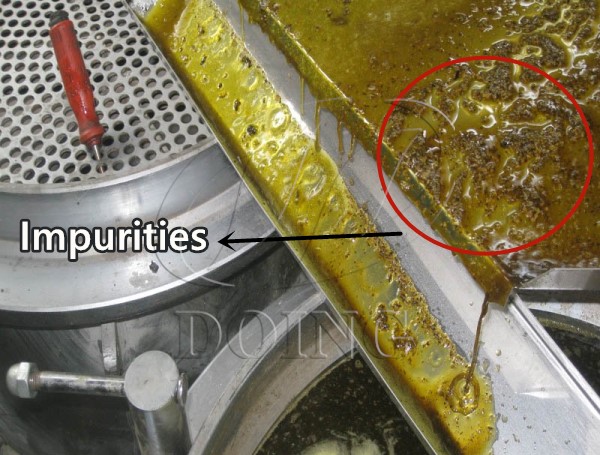What kinds of impurities are present in crude vegetable oil?
Tech / Chat on line / Give me a price / Date:2019-01-17
Crude vegetable oil is extracted from oilseeds through pressing or solvent extraction method. Oilseeds themselves may bring into some impurities, and the solvent extraction method may exist solvent rezidual. Refining means to get rid of the impurities present in the crude vegetable oil to get the fined edible oil.
 The impurities in crude vegetable oil
The impurities in crude vegetable oil
Generally speaking, impurities present in crude vegetable oil can be devided into four kinds. Next, I will introduce them one by one.
1. Mechanical impurities
Mechanical impurities refer to sediment, billet powder, cake residue, fiber, grass clippings and other solid impurities that are mixed into the oil during vegetable oil making process or storage.
Such impurities are insoluble in fats and oils, so they can be removed by filtration or sedimentation method.
2. Moisture impurities
The presence of moisture impurities makes the oil color darker, produces odor, promotes rancidity, reduces the quality and use value of the vegetable oil. And it is not conducive to vegetable oil safe storage.
The vegetable oil refinery plant often uses heating to remove moisture impurities in atmospheric pressure or reduced pressure condition.
3. Colloidal impurity
The colloidal impurities are easily affected by moisture, temperature and electrolytes.
Colloidal impurities presence in the crude vegetable oil is often removed by hydration or addition of an electrolyte for acidification or alkali refining.
4. Fat-soluble impurities
The presence of free fatty acids in fat-soluble impurities affects the flavor and edible value of the oil and increase the speed of oil rancidity.
In vegetable oil refining process, fat-soluble impurities are often removed by alkali refining and distillation.


